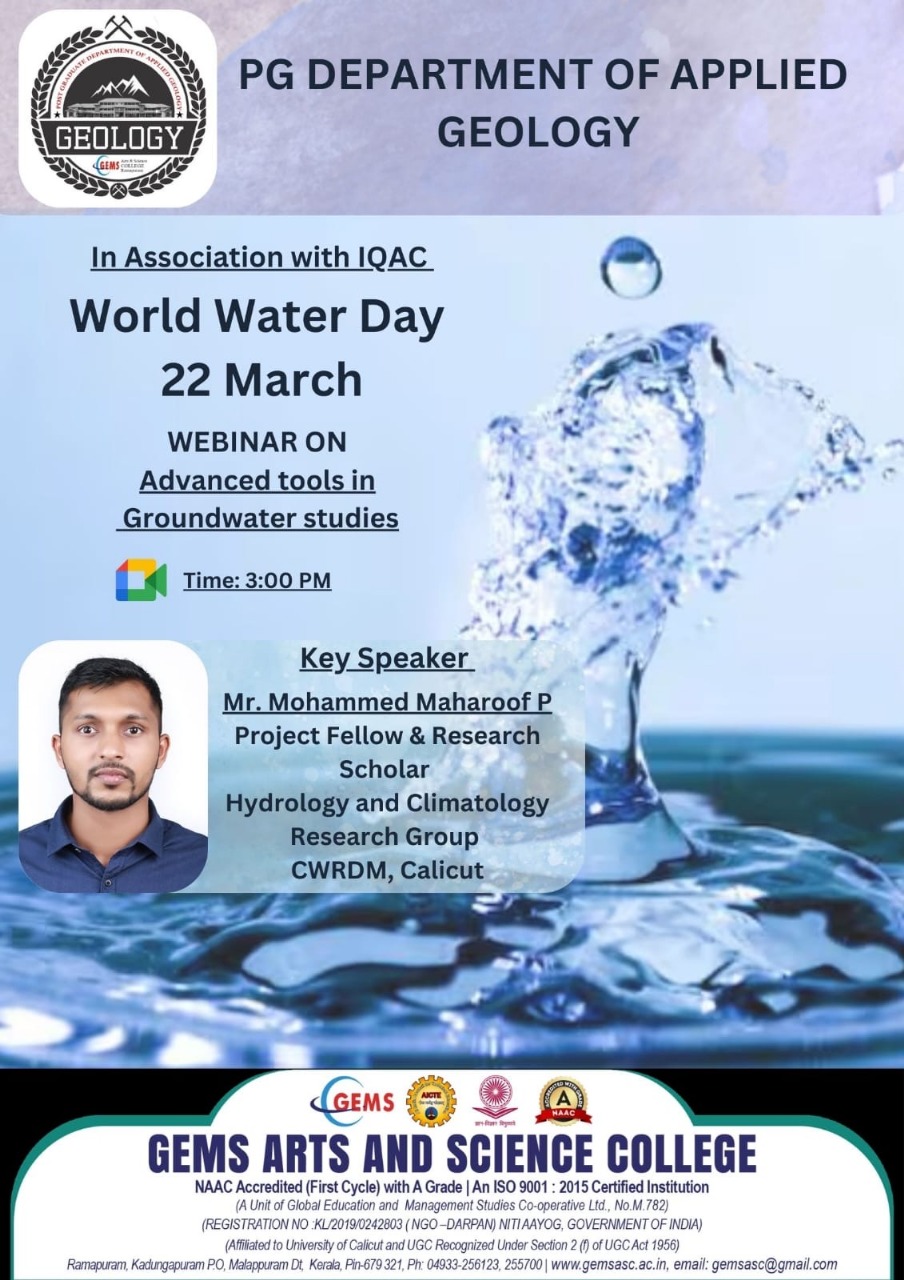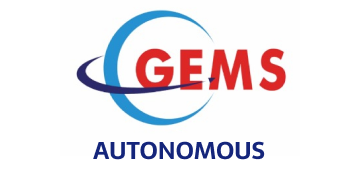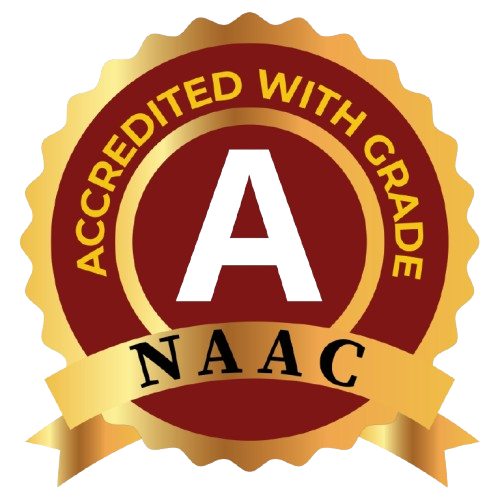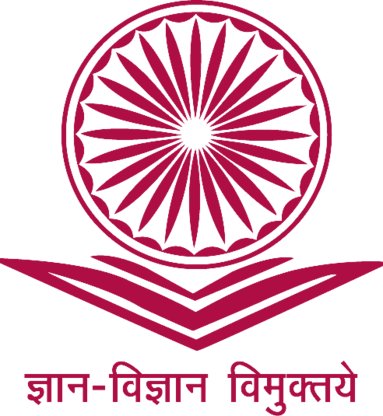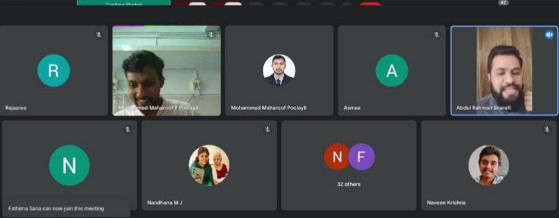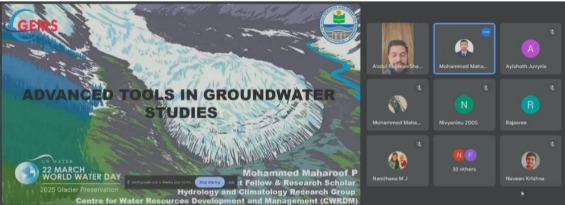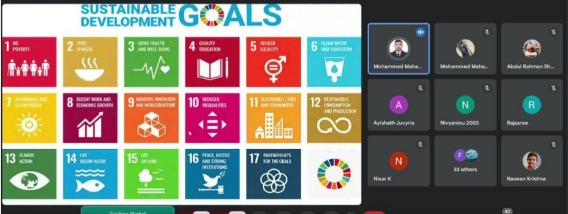Start writing here...
The PG Department of Applied Geology, in collaboration with the Internal Quality Assurance Cell (IQAC), successfully organized a webinar on “Advanced Tools in Groundwater Studies” on March 22, 2025. The session was delivered by Mr. Mohammed Maharoof P, Project Fellow and Research Scholar at the Hydrology and Climatology Research Group, Centre for Water Resources Development and Management (CWRDM), Kozhikode.
The talk provided an in-depth understanding of India’s groundwater resources, addressing key challenges such as increasing water demand, over-extraction, contamination, and the impacts of climate change. Mr. Maharoof elaborated on a range of modern hydrogeological tools and techniques, including remote sensing, GIS mapping, geophysical surveys (resistivity and seismic methods), isotope hydrology, and numerical groundwater modeling, emphasizing their importance in groundwater exploration, monitoring, and sustainable management.
He also explained the structure and functioning of aquifer systems, groundwater flow dynamics, water quality assessment methods, and artificial recharge techniques aimed at promoting long-term water conservation. Using case studies, satellite imagery, and real-world examples, the speaker demonstrated how advanced technologies are applied to identify groundwater potential zones, detect contamination sources, and predict future water availability under changing environmental conditions.
The webinar was attended by 59 participants, including postgraduate students and faculty members, who actively participated in the interactive discussions. Participants raised insightful questions on groundwater management strategies, technological innovations, and career prospects in hydrogeology, to which Mr. Maharoof provided detailed and practical responses.
The session concluded with a vote of thanks proposed by Ms. Ayishath Juvyria, Assistant Professor, Department of Geology, who expressed sincere appreciation to the resource person for sharing his expertise and to the participants for their enthusiastic involvement.
Overall, the webinar proved to be a highly informative and thought-provoking session, underlining the importance of integrating advanced scientific tools in groundwater studies to address the emerging water crisis and ensure sustainable water resource management in the future.
